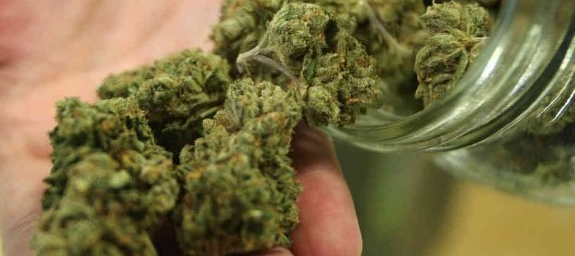By Yaël Ossowski | Watchdog.org
The dominoes are falling all across New England.
The New Hampshire House of Representatives made history last week when it became the first state Legislature to vote in favor of a bill to legalize the sale and possession of recreational marijuana.
“Polls show 60 percent of voters in the state support (the bill), and we won’t rest until that includes a majority of their state legislators,” Marijuana Policy Project legislative analyst Matt Simon said in a statement last week.
If the bill survives committee and a final vote is signed off by the governor, New Hampshire would join the pot-friendly New England town of Portland, Maine, which voted to legalize it on Election Day 2013 in a special referendum, and a host of other states and municipalities looking to ax the prohibition on cannabis.
“The legalization of marijuana is moving fast in parts of the United States, and it looks as though the domino effect could quickly move to other states such as Vermont,” said former Rhode Island U.S. Rep. Patrick Kennedy, chairman of Project Smart Approaches to Marijuana, a group “dedicated to a health-first approach to marijuana policy.”
If the former congressman, now an infamous pot crusader on the national stage, is correct, then the New England pot domino theory likely points to Vermont as the next state to abandon prohibition in the 21st century and embrace a radically different approach to drug use and abuse.
The state already passed a law effectively decriminalizing marijuana in July 2013, and, in the pattern of states such as Colorado and Washington, a bill to completely legalize the sale and possession of cannabis will be on this session’s agenda in Montpelier.
Senate Bill 306, the marijuana legalization bill introduced by Progressive Party state Sen. David Zuckerman, of Hinesburg, in the first week of 2014, awaits examination in committee.
According to a 2012 survey by the Substance Abuse and Mental Health Services Administration, Vermont ranks highest in the nation for use of illicit drugs, along with several other New England states.
In that spirit, Gov. Peter Shumlin dedicated his entire State of the State address earlier this month to the “rising tide of drug addiction and drug-related crime,” and he’s made it a central part of his second term in office. For that, he’ll receive significant support from the federal government.
In 2012, Vermont received more than $58 million in federal grants to “reduce drug use and its harmful consequences,” according to the White House. Considering the situation as Shumlin describes, that figure could climb higher in the next round of budget negotiations.
Advocates of reforming drug laws, meanwhile, see the Green Mountain State as a potential exemplar in the war against drug addiction, which could offer across-the-board decriminalization of all drugs in order to address abuse through health-based programs instead of prison time.
“Vermont may be the best state to lead the nation in adopting a Portugal-style approach to fighting drug abuse,” writes Sam Tracy, chairman of Students for Sensible Drug Policy, a drug reform nonprofit organization based in Washington, D.C. “Treating drug abusers as patients rather than criminals, like we already do for alcohol and tobacco addicts, avoids these issues, and is much more effective at reducing abuse.”



